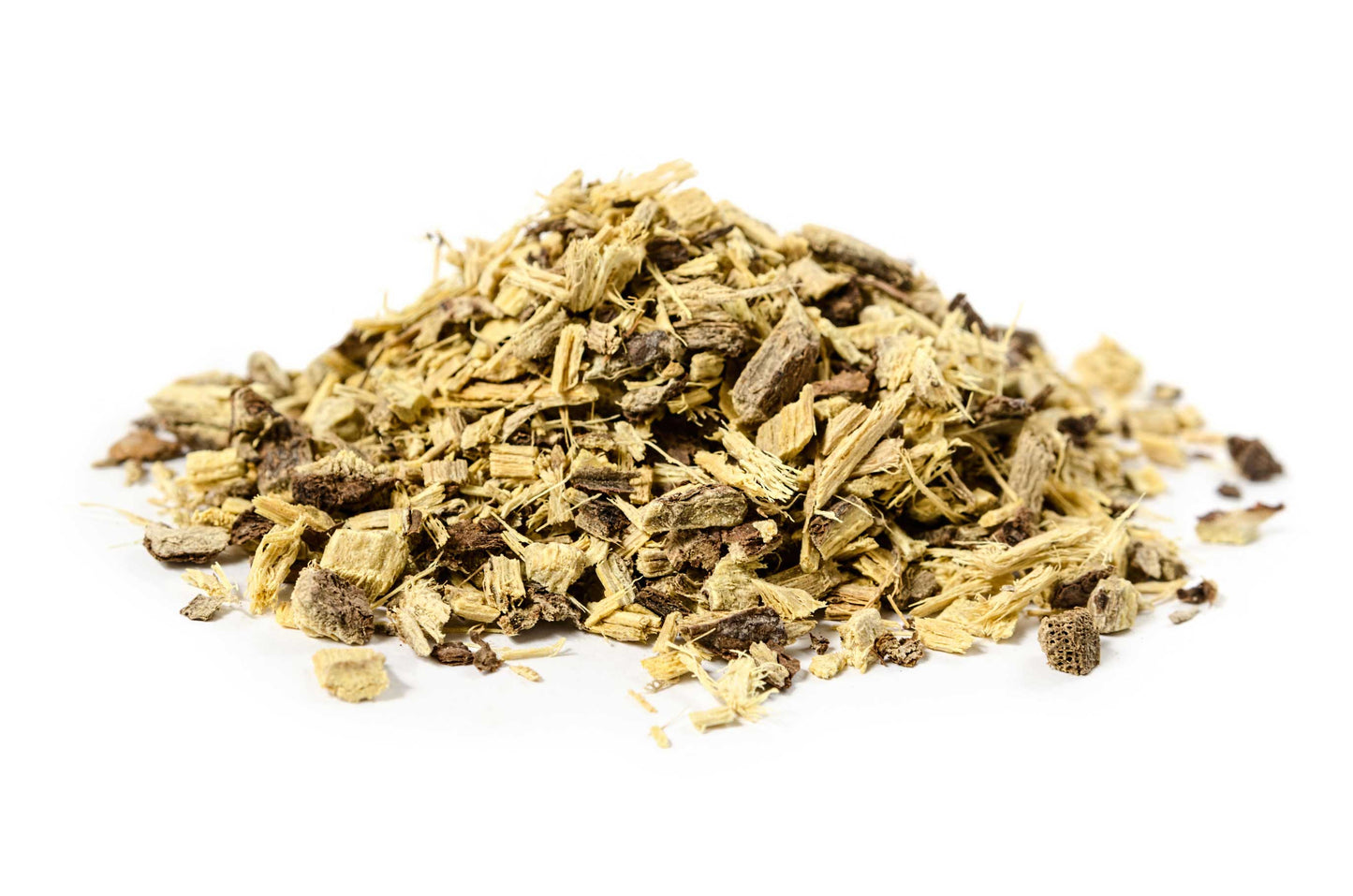BioComplete Licorice Root Powder
BioComplete Licorice Root Powder
Couldn't load pickup availability
Glycyrrhiza glabra (and several other species, some dangerous) true licorice, and sweet licorice.
Licorice root is one of the most widely used herbs worldwide. It was used by the Egyptians as a flavoring for a drink called Mai-sus, and large quantities were found in the tomb of King Tut for his trip into the afterlife. Dioscides, when traveling with Alexander the Great, recommended that his troops carry and use licorice to help with stamina for long marches, as well as for thirst in areas of drought. In the middle ages it was taken to alleviate the negative effects of highly spicy food or overcooked food. It was also used for flavoring tobacco, and as a foaming agent in fire extinguishers and beer. An astonishing number of Chinese herbal formulas (over 5,000) use licorice to sweeten teas and to "Harmonize" contrasting herbs.
Don't use licorice if you have high blood pressure, and don't use licorice if you eat a meat and potatoes diet. Your body needs potassium from fruit and vegetables to compensate for the excretion of potassium stimulated by licorice. If you use steroids or an asthma inhaler, licorice will increase both the effectiveness of the drug and the severity of its side effects. Its long term use is not recommended, and it is not recommended for use by pregnant women. May cause stomach upset if taken in large quantities.
Teas, tinctures, and in encapsulations.
This information has not been evaluated by the Food and Drug Administration. It is not intended to diagnose, treat, cure, or prevent any disease. These food products may be beneficial for supporting optimal health.
For educational purposes only.
Capsules available upon request.

-
Safe Payments
-
Fast Delivery
-
Easy Returns
-
24x7 Customer Support


